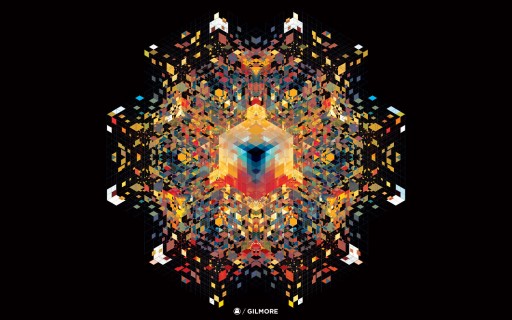
I let myself recover and try not to make it worse by shaming myself for needing a bed day now and then.

I have people who depend on me.
My 14-year-old son has Long Covid with what they’re calling reversible small airways disease. He’s missed so much school over the last 3 years that we’ve had to transfer him to online school. He also has like three or four medical appointments a week he has to be driven to.
My wife has severe autism and EDS. She can barely do anything due to body pain and sensory overload.
Oh yeah, and all of their needs run 100% counter to one another and cause horrible conflict. Like “my wife uses cannabis to manage pain and sensory overload, it’s one of the few things that can help her function like a normal person for a little while” and “due to his small airways disease, my son’s pulmonologist has told us it’s very important for him to never be in a house where someone is smoking or vaping.” Like “due to the EDS my wife’s body can’t regulate its own temperature and she starts overheating if the temperature goes above 70° (like vomiting and passing out overheating)” and “due to complications from Post Acute COVID Syndrome, my son’s body gets chilled easily, and he starts getting asthma attacks if he breathes cold air.” Like “due to her autism, my wife’s life needs to be a carefully regimented routine, that as much as possible goes the same way everyday, the same things happen at the same times, things need to be predictable and planned in advance, or she literally breaks down, can’t function, has violent meltdowns and panic attacks” and “due to the online school, the medical appointments, combined with just being a teenager, my son’s life is barely manageable chaos.”
Oh yeah, and if I don’t get out of bed, go to work and bring in money, both of these people are fucked!

Good luck dude. You got a lot on your plate, but a good attitude to handle it. Inspirational.

due to body pan
I hope you don’t mind me prodding, but what’s body pan?
I’m sorry you have to deal with all of this, though.
e: i’m dumb

Not the person you were replying to, but it seems most likely it was a typo for ‘pain’

I’m on my phone. Be grateful it as coherent as it is.

For me what has worked best is setting a bare minimum that is super easy to hit. Creates opportunities for easy wins, which then often gives me just enough of that dopamine boost to do another little thing.
For instance, I try to work out 3 days a week. Some days even walking up my stairs takes almost all my willpower. So what I do is just tell myself, “it’s alright, to skip the full workout, just go over to your dumbell and do 1 single rep, that’s it.”
I almost always can at least do the absolute bare minimum, like lift the weight 1 time. Or pick up just one item of clothing off the floor, or put 1 dirty dish in the dishwasher.
Allowing myself to do just the absolute minimum without shaming myself really helped my mental health. I very often found that the task wasn’t as terrible as it seemed in my head, and the amount of energy I had was a little bit more than I thought I did.
The dopamine from actually being able to do a few things fed into itself and created those healthy brain paths and habits over time. I’m in a far better place mentally now, and my baseline has increases a lot.

Lists are my friend. My partner and I both go through depressive episodes and are supportive when that happens. Last year I made a couple lists: things that have to happen once a year, seasonally, monthly, weekly. On top of that, lists for when I’m feeling good and when a depressive episode happens.
It’s basically a “what can fall to the wayside?” list.
So, when I struggle to get up and do anything, I force myself to get up each day for a couple things: I must brush my teeth in the morning and at night at least, I must do one thing that used to bring me joy (could be a puzzle, revisit a tv show, etc), and I must do one small chore (put some dishes away, wipe the bathroom sink, check the mail).
It’s all just stuff to try and fight without losing even more energy.
Everyone is different though. I hope you find what works best for you.

I remember that if I don’t get out of bed, I’ll be homeless.

-
Forget about everything regarding the word “should.” In your opinion whatever “should” be happening, whatever you “should” be doing, and whatever you “should” be able to do are all not only irrelevant but directly counterproductive. The disparity of how things are, how you think they should be, and how you lack the ability to reconcile these things however hard you tried is why you’re in this mess. Those expectations were probably unfair to you anyway.
-
Understand that your thoughts are not necessarily true. It’s natural to assume the things you are thinking are true because you’re thinking them. You actually don’t know if your conclusions are correct just because you intuited them. Especially the thoughts generated by a depressed mind should be put to scrutiny. You don’t have to lie to yourself and tell yourself things aren’t as bad as they are and you absolutely shouldn’t even try to do this. The thoughts to challenge are the ones saying it will always be this way no matter what you do or knowing what you know or experiencing what you experienced has made this kind of depression your fate. Your depressed brain doesn’t know this for sure however sure it feels. I used to believe these thoughts and I haven’t had reason to for a long time.
-
Starting over sounds way worse than it is. The way you were approaching things until this point put you on the path which lead you into this depressive episode. Whatever brought you to this point is clearly not serving you or anyone else and can’t continue. This may take some therapy, acid, or mind-journeys to figure out, but you may be able to cease or greatly mitigate the situation by making major life changes. Whatever you’re afraid of by making these significant changes, your present situation (bedridden with depression) is worse than anything that can happen when you start fresh doing things differently. Nothing could be worse then being unable to move and wanting nothing more than death to free you. Nothing about this state is natural, and although aggravated by the outside world, is also majorly influenced by your interaction with the world. It’s fully possible to get different results by doing different things or even dropping worthless self-destructive thought cycles.
-
Put yourself under the sun. Advising any kind of physical activity to someone whose depression is so severe they can barely move is silly. That kind of thing is further down the line. For now, you just need sunlight. It helps. Everything above is much easier to do laying motionless on the ground under the sun than it is in your dark bedroom.
This kind of depression sucks hard, I’m sorry you’re having to go through it right now.
-

Light.
Absolutely stupendous quantities of high-quality, full-spectrum light.
Live in a light-box.
There is a circuit which goes from pigmented-ganglia ( black-pigmented nerve-endings ) in our retinas, into our brains.
That sensor-system is rather dull, unlike the rods & cones.
Rig a room’s light-switch so that when you flick it, suddenly you’re saturated in sufficient light to cross your light-threshold, about 1/2 second later, it’s like vital aliveness kicked into your brain.
I’ve replicated the experiment, and I’ve gotten others to do it, too.
One non-obvious thing, though:
Because when we’re in the dark, we can’t remember what it felt-like to have that light-brain circuit activated ( the SAD-treatment lights are intended to cross this threshold: it’s the same mechanism ), so therefore, to treat profound, long-term depression, you NEED to get tons of lights onto a timer, & use that as your “alarm clock”.
It works.
It’d save many lives, if doctors would admit it is actual, evidence-based medicine, but that’d gut billions of dollars of psychiatric-industry, so … that won’t ever happen.
( dad was a medical-researcher & doctor: I remember the grudge/hatred when the Australian researcher violated psychiatry’s established “ulcers are a psychiatric illness” dogma, with evidence showing that ulcers are created by pylorii bacteria.
Paychiatry won’t ever do the experiment, they won’t admit it works, they won’t tolerate anybody claiming it works, etc.
Religion is religion, and my autistic-empiricism has no validity in their reality.
Do the experiment, though, & you’ll see that it actually tests to be true. )

I took psych 101 as an elective and I remember the professor talking about this or something closely related to it. Bright light does have an effect on the brain, he said.
Also it’s probably part of why looking at your smart phone right before bed is kind of bad for you.

If you aren’t sleeping, there’s no faking that. You need sleep. It’s a separate discussion to improve sleep health.
The one thing I do to keep moving is make my bed only for sleeping and fucking.
No tablets, TV’s, phones, books, anything. No food or drink, only water on the bedstand.
I find if I’m not lurking in my bedroom, my chances of getting other things done goes up, even when I’m feeling low.

Do you like coffee? It’s not fool proof, but I basically bribe myself with coffee. I got one of those coffee makers that you can set to brew at a certain time. I’m much more likely to lurch into the kitchen at some point if I know I have coffee already waiting, if only because I hate wasting it.
ETA I kinda recommend going half-caf if you do this though, because caffeine dependence won’t help you in the long term. I’m suggesting motivating yourself with something tasty, not making your heart race 24/7
I do indeed like coffee, but unfortunately (please don’t laugh) I can only drink decaf now because regular ☕️ will sometimes trigger a panic attack. 🙁

Not laughing at all, I think it’s great that you identified the trigger and had the willpower to cut it out of your life.

Hey that’s completely fine, I just quit coffee some weeks ago. It’s sooo much better for the ol’ anxiety

L-theanine stops the conversion of dopamine into adrenaline. This is why green tea isn’t as stressful an experience as black tea or coffee. You can buy l-theanine tablets all over the place. I take one with coffee every time and that has resovled the issue of coffee stressing me out.

Regular coffee, though extremely popular, has its down sides. Unfortunately lots of people and scientific research prefer to focus on the pros of coffee. For people who for example need to be careful with dealing with stimuli, it makes sense to drink something else than coffee. A search engine search for
caffeine stress mental healthmay bring about some less known information about this. And I know from experience that once you’re completely off regular coffee life is different. It may take a few weeks for that.
Have you tried chocolate? Turns out both coffee, tea, and chocolate, have caffeine in them. There are different % cacao chocolates, might be easier to tune the dose, and they come in more flavors… (yay, addiction! 😅)

so mine is kind of situational, but while I have a really hard time taking care of myself, I’m always able to get up and do things for my dogs. they need to be let out, shown affection (which is also good for depression!), fed, etc. it helps that they like to lay in bed with me and are very forgiving when it comes to timing on, say, when they’re fed.
honestly I just think having something to care for in these situations can be very helpful, but it also depends on the person.

I personally use the app Finch to have tasks that I want to do daily or semi daily. You have a virtual pet and by doing tasks it gets energy so it will travel and discover things. You can add friends and they can send motivational messages.
Just by doing something simple like that has helped me.
It has a plus model, but it’s not required at all, no premium currency and if you want to get plus but can’t afford it, you can enter a raffle to get it for free or you can get a discount of your subscription.
Also, if you wish, here’s a referral code 7KJERKQJXD, not sure if you get something.

I didn’t know I needed this. In fact, I’m still not sure but thanks for posting it!

It really helped me, so I hope it will for you as well! :)

We live in severe crises time sadly 😒 Currently reading a book by Gabor Maté about addiction and drug addicts, including workaholics and people addicted to shopping . It mentions how stress can deprive us from good sleep. Sleep is very important. On the other hand my own experience is that too much sleep can be as bad as too little sleep. What gives me energy is staying away from bad food and drinks and be very conscious about what to consume. Things that gets me going on : music, hobbies and work. Of course your mileage may vary. For some medicines can help, for others social interaction is important. Take care!

Sometimes it’s hella hard but I always keep in mind that even when I’m at my lowest getting my heart rate up outside always makes me feel a little better
Or sometimes even finding something small I can finish quickly helps
I look at big problems as a collective of small solvable puzzles, this helps me keep those problems has something I can fix
“Fuck my room is a mess. If I pick up this one box my room will be cleaner than it was before leading me one small step closer to having a clean room.” Is a great example IMO (and how my morning started today)

Sometimes I don’t. 😐

My trick is not giving myself the option to not do it.
It doesn’t matter if I don’t have any energy; shit needs to get done and I’m the only one who can do it.
It’s not an easy thing to do, so it definitely takes practice.

